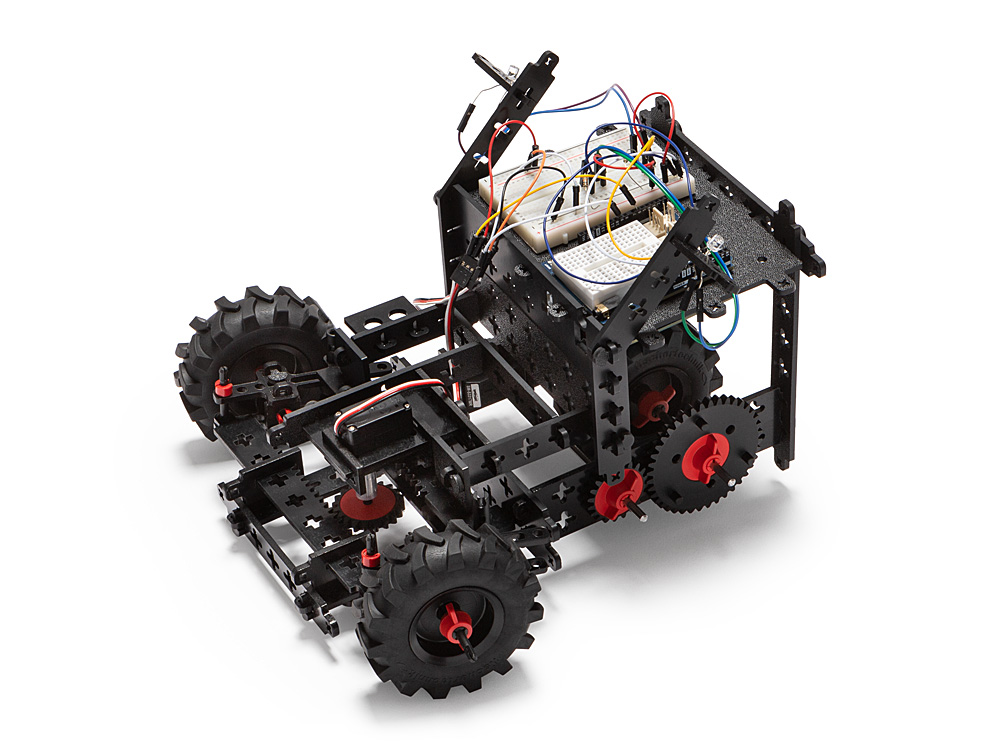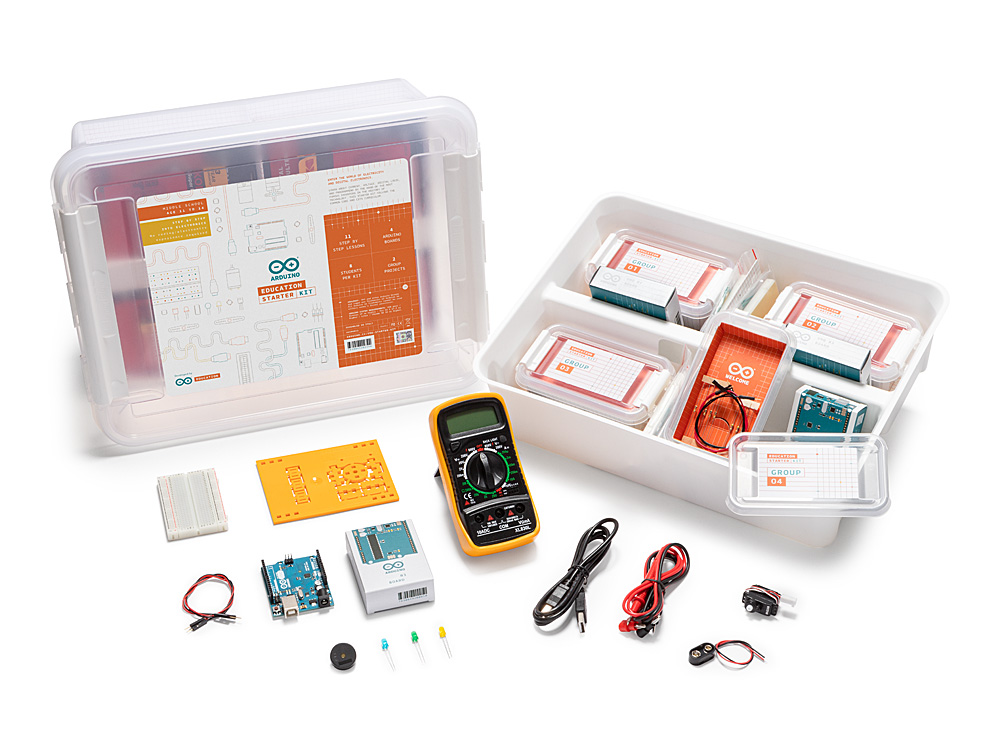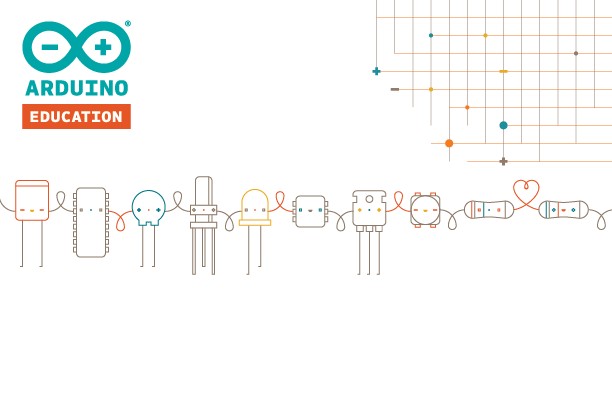22
During Bett Show 2020, Arduino will launch the Arduino Education learning evolution: four new STEAM products for students in lower secondary school through to university. Arduino Education will also announce a partnership with the Fraunhofer Initiative: “Roberta – Learning with Robots” in Germany.

Arduino Education‘s latest products — CTC GO! Motions Expansion Pack, Engineering Kit Rev2, Arduino Education Starter Kit, and IoT Starter Kit — will be unveiled at Bett and available in Q1. These new products complement the existing portfolio, which includes the Science Kit, CTC GO!, CTC 101, Arduino Starter Kit, and Certification program.
Arduino CEO Fabio Violante comments: “We are delighted to announce four new products which will expand STEAM learning for lower secondary to university students. Our technology, programming, and curriculum content are creative tools — just like brushes and paint — that students can use as they become part of our next generation of scientists and artists.”
CTC GO! Motions Expansion Pack (Age: 14+)

Build on your secondary school students’ STEAM knowledge with more complex programming concepts that develop computational thinking and 21st-century skills.
For educators who have taken their students through the CTC GO! – Core Module, the Motions Expansion Pack builds on what they have already learned about how to use technology as a tool and how to apply that knowledge in the real world. The Motions Expansion Pack challenges students to go a step further in computing and design while introducing them to motors and transmission mechanisms such as pulleys and gear concepts that develop their logical reasoning, hands-on building skills, and problem-solving skills. Educators get all the teaching support they need with webinars, videos, guides, and direct contact with an expert.
Engineering Kit Rev2 (Age: 17+)
Challenge upper secondary school and university students and help them develop hands-on engineering skills.
Educators can challenge engineering students and help them develop physical engineering skills with the Arduino Engineering Kit Rev2. Featuring cutting-edge technology, the kit is a practical, hands-on tool that demonstrates key concepts, core aspects of mechatronics, and MATLAB and Simulink programming. Developed in partnership with MathWorks, The Engineering Kit Rev2 is ideal for advanced high school and college students, the three projects teach the basics of engineering — plus they’re fun to do!
Education Starter Kit (Age: 11+)

Learn electronics and get started with programming in your classroom step-by-step — no experience necessary!
Educators can teach lower secondary school students the basics of programming, coding, and electronics. No prior knowledge or experience is necessary as the kits guide educators through step-by-step, they are well-supported with teacher guides, and lessons can be paced according to students’ abilities. The kit can be integrated throughout the curriculum, giving students the opportunity to become confident in programming and electronics with guided sessions and open experimentation. They’ll also learn vital 21st-century skills such as collaboration and problem-solving.
IoT Starter Kit (Age: 14+)
The first step into the world of connected objects has never been easier.
Advanced secondary school and university students can get started with the Internet of Things quickly and easily. They’ll learn about using sensors; automation; logging, graphing and analyzing sensor data, and triggering events with serious technology made simple. The kit contains step-by-step tutorials for ten different projects – fun, creative experiments using real-life sensors.
In partnership with the Fraunhofer Initiative: “Roberta – Learning with Robots”
The dream team for classrooms worldwide: Arduino Education has officially partnered up with the Fraunhofer Initiative “Roberta – Learning with Robots.” The Arduino Uno WiFi Rev2 board, part of Arduino CTC GO!, joined the Open Roberta Lab, the biggest open-source coding platform developed in Europe.
The Arduino Uno WiFi Rev2 is the fourth Arduino board to be integrated into the Open Roberta Lab, which currently supports 13 robots and microcontrollers that enable children worldwide to adopt a playful approach to coding. The lab is the technological component of the Roberta Initiative, which was started by Fraunhofer IAIS in 2002. Eighteen years’ experience in STEM education, training teachers, and developing materials as well as launching the Open Roberta Lab in 2014 make Roberta a one-of-a-kind initiative in Germany and beyond, and the perfect partner for Arduino Education.
“Fraunhofer offers guaranteed quality, both on the technical level as well as for community support,” says Arduino CTO David Cuartielles. “There are a lot of synergies in our cooperation. Roberta is really meant for teachers to learn how to teach technology, and that’s also a key part of Arduino Education’s mission.”
“Open Roberta is developed as an open source platform to engage a community worldwide to join our mission. As a popular open source electronics platform, Arduino is the perfect match for us as it also motivates people all over the world to develop their own ideas and move from using to creating technology,” adds Thorsten Leimbach, head of business unit “Smart Coding and Learning” and Roberta manager at Fraunhofer IAIS.



